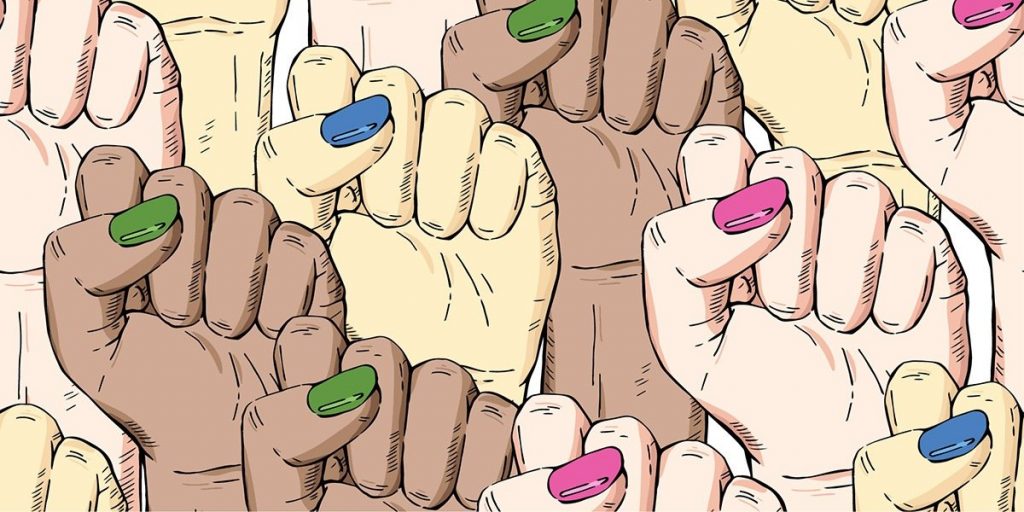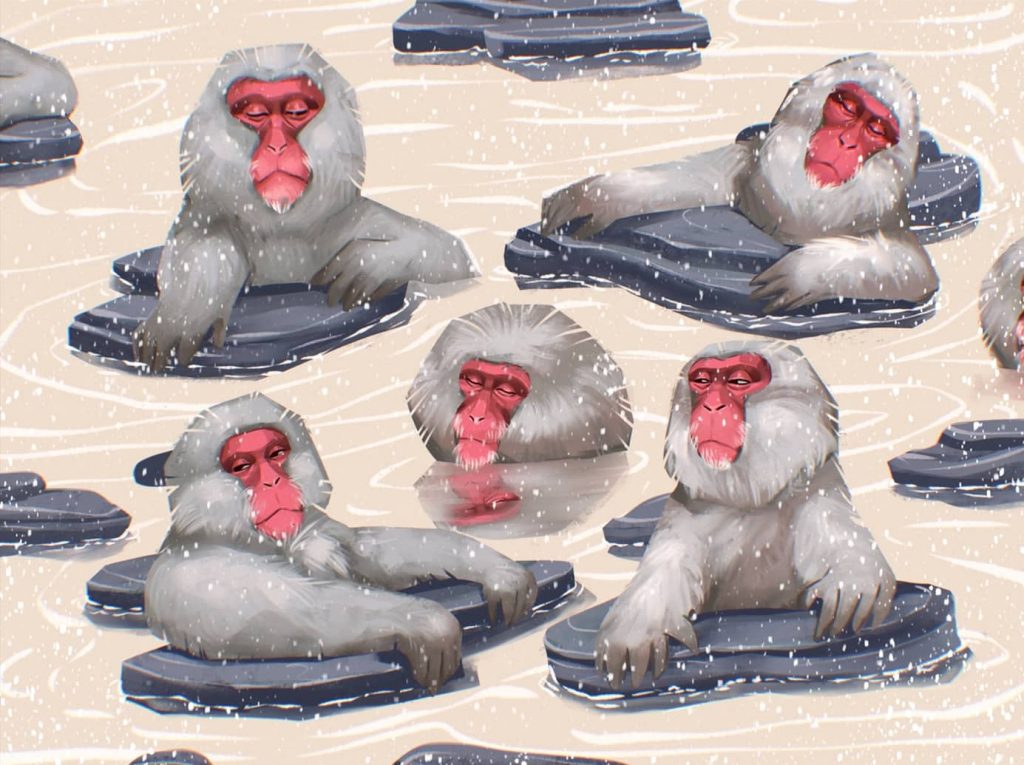
Article 21 of the Constitution, while safeguarding the rights of humans, protects life and the word “life” has been given an expanded definition and any disturbance from the basic environment which includes all forms of life, including animal life, which are necessary for human life, fall within the meaning of Article 21 of the Constitution.
Animal Welfare Board Of India vs A. Nagaraja & Ors.
How many times has this happened that you have seen people misbehaving with animals be it live or on the internet? The answer would most possibly be ‘many times’. But why do people do so? How come do these people act so inhumanely with our fellow beings? Their answer would probably be, ‘because they are animals’ and moreover they might be triggered by the idea of calling them our fellow beings. The bottom line for a fact is that human beings have never been humane to animals.
According to a study, human beings annually killed 100 billion animals both domestic and wild which on average equates to 14 animals per person. Albeit, not all humans are walking on the wrong path since there are people who have initiated the movements for animal rights and welfare and have been working for making animals’ lives better throughout. The debate on fair, just, and equal treatment of these species has long been in the spotlight but the issue of debate has shifted slightly from animal protection, etc. to animal rights.
Talking about Human Social and Civil Rights

There are five types of human rights namely, social, civil, economic, cultural, and political rights. Among these rights, economic, cultural, and political rights could not be extended to animals as per their nature, but social and civil rights could be extended to animals by adopting suitable measures and steps. In the past, we have seen a myriad of instances where animals have been inflicted with injuries or the worst killed. The reality is that cruelty to animals has always been proliferating, be it in the shape of abandoning pets like cats and dogs, killing animals for feeding humans, or physically harming animals. But is that all?
No, the other ways in which cruelty is exercised on animals will give you goosebumps. And this is the reason why the question of providing human rights to animals is one of the most integral questions in today’s scenario. We are already delayed in taking cognizance of this matter because an uncountable number of animals, birds, and other non-human species have already been a victim of human cruelty and reached the verge of extinction or have become extinct. It is high time that the social and civil rights of animals be recognized by making additions to the present laws or by making new laws and not only this but awareness be created for the rights of animals too as it is spread for those of humans. We humans do have a lot of rights but neither do we have nor should we have the right to extend cruel behavior towards our fellow species/ beings.
Laws in Place for providing Animal Rights

Many laws have been enacted for protecting animals in India. But people have not been any kinder to animals and continue to inflict harm and even kill them on their whims and fancies. But it is imperative to know what the laws are because perhaps this malpractice continues due to the obliviousness about the rights of animals.
- Indian Constitution – The protection of animals is enshrined in the Constitution of India as a fundamental duty. Article 51 (G) of the Indian Constitution states that “It shall be the duty of every citizen of India to protect and improve the natural environment including forests, lakes, rivers, and wildlife, and to have compassion for living creatures.”
- Prevention of Cruelty to Animals Act, 1960 – As a result of the implementation of this act, the Animal Board of India was formed which endeavors to promote the welfare of animals. The act also provides for the prohibition of experiments on animals and exhibition and training of performing animals inter alia.
- Indian Penal Code, 1860 – Sections 428 and 429 of the Indian Penal deal with offenses relating to animals. Section 428 provides, “Mischief by killing or maiming animal of the value of ten rupees.—Whoever commits mischief by killing, poisoning, maiming, or rendering useless any animal or animals of the value of ten rupees or upwards, shall be punished with imprisonment of either description for a term which may extend to two years, or with fine, or with both.” Section 429 provides for the punishment of offenses against animals of the value of fifty rupees.
- Wildlife Protection Act, 1972 – This act provides for the establishment of welfare boards, prohibition of hunting of wild animals, transportation of animals, plants, or birds without permission, and prohibits purchasing of animals without license inter alia.
There are certain rules also which have been made for protecting the animals and wildlife. Not only in India but there are other countries also where such laws, rules, and regulations are in place.
Animal Rights vis-à-vis Human Rights
According to the Humane Society almost 25 million animals every year are used for research, testing, and educational purposes in the USA, and all these animals are ultimately put to death after experimenting. As per the Wildlife Protection Society of India, the country has lost 110 tigers and 491 leopards in 2019 with a third of them to poaching. These are statistics from the USA and India only but such practices are prevalent throughout the world. To stop such practices and highlight the rights of animals many decisions have been passed in different judgments. For Instance, in India, and around the world there have been many instances and landmark cases where the rights of animals are the same as humans have been upheld.
In India, in the 2001 case of Nair, N. R. and Others. Vs. Union of India and Others, the Kerala High Court has held that “Bears, monkeys, tigers, panthers and lions shall not be trained or exhibited as performing animals.”
In India, the most popular and landmark case in this regard is the Animal Welfare Board Of India vs A. Nagaraja & Ors. Case (hereinafter referred to as the Jallikattu Case). It was a case of the year 2014, in which the Supreme Court bench consisting of judges K.S. Radhakrishnan and Pinaki Chandra Ghose have declared that animals have a right to protect their life and dignity from human excesses. The Supreme Court had also said that the animals have an inalienable right to live in a healthy and clean atmosphere, not to be beaten, kicked, bitten, tortured, plied with alcohol by humans, or made to stand in narrow enclosures amidst bellows and jeers from crowds. Other major observations were also made by the court. Countries like the UK, Austria, Australia, New Zealand, etc. also have laws in place for safeguarding animals.
In the Re: Bruno case, in 2021 the Kerala High Court has taken suo motu cognizance of the brutal killing of a Labrador dog named Bruno in Thiruvananthapuram by two juveniles. The case was named after him to pay him a tribute. In this case, the court has issued a slew of guidelines for the state to “alleviate the misery” of animals.
In 2016, in Argentina, a chimpanzee titled Cecilia, who was contained in a zoo in Mendoza was sent to the Brazilian Sanctuary. The reason underlying the decision of the respective judge, in this case, was that the chimpanzee had the fundamental right to be born, to live, grow, and die in the proper environment for the species. The courts in Argentina and Colombia have extended the constitutional human right to habeas corpus and the underlying right to freedom to captive animals.
So, these are some cases in regard to animal rights but in other countries also a plethora of cases have come into courts in regard to the same. The facts of the above-mentioned cases have shown how imperative it is to contemplate the matter of welfare and rights of animals and why and how human rights be it social or civil should be extended to animals.
Conclusion
In childhood, it always used to be fun when visiting the zoo or going to a circus, but as we grew up we got to know that it was indeed fun for us but not for those animals out there or more precisely in there. This is the problem. We got to know about their suffering as we grew up whereas we should have known it from our childhood that joy does not come at the sake of someone else’s sadness because then we would have this empathy for animals instilled in us from a young age which would hold us back from being brutal or cruel to them in future.
We are all creatures made by God, and so we assert that everyone is equal and we should be kind towards each other. But when did we forget that not only humans but the other creatures are also made by the same God who made us? Cutting the long story short, humans have not been kind to their fellow beings and have always stifled them. The supporters of animal rights have highlighted how animals and other species feel pain and they have feelings too. If it hurts humans when they get a cut, it hurts other species also, if it hurts humans to get burnt by a cracker it hurts other animals also (as it hurts the pregnant elephant who was fed a fruit with crackers inside it which burst in her mouth and as it hurts those dogs to whose tails crackers are attached) and if it hurts humans to be away from their family it hurts other species too.
But these are emotional assertions that will not do the part of providing animal rights. There are precedents that have recognized the rights of animals in different cases like the Jallikattu case and the Bruno case etc. the government has also taken steps and a lot of organizations are also working for the noble cause of saving animals but the need is to come up with more stringent laws that prohibit harassment and cruelty towards animals. A pertinent point is of the book Animal Liberation in which the author Peter Singer has asserted that the basic principle of equality is not something that requires equal or identical treatment but it requires equal consideration. So we need to give equal consideration to all the species on earth and the soft, not harsh human touch that our fellow beings would love.